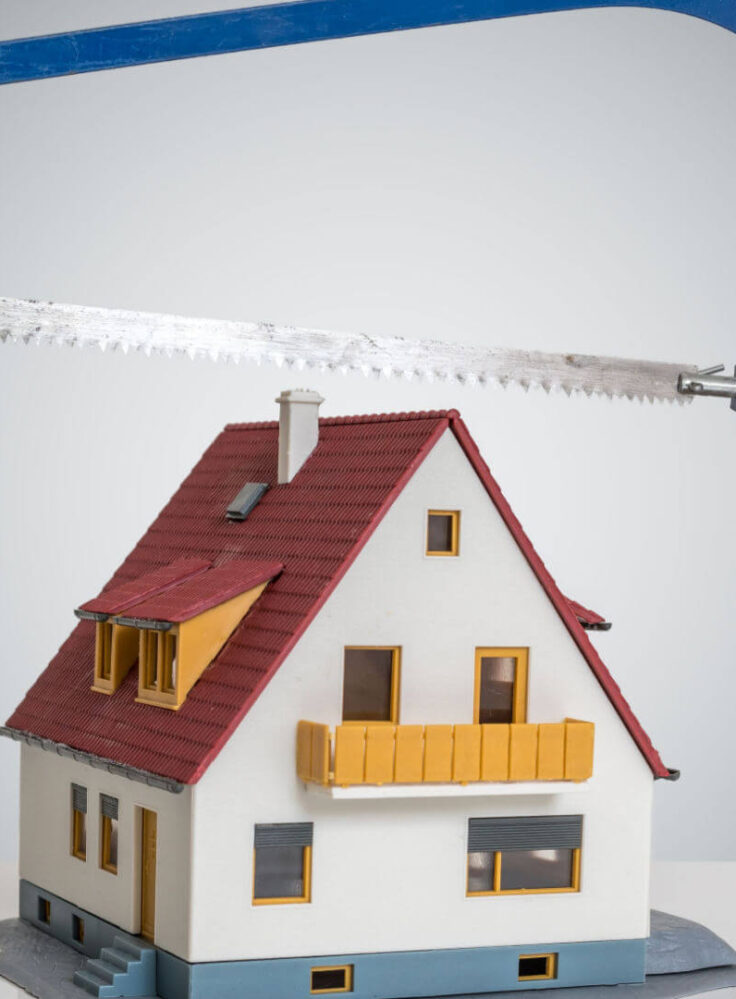Pennsylvania Fence Laws Explained
Pennsylvania fence laws can seem complex, but they are essential for maintaining peace and order among neighbors. These laws govern various aspects of fence construction and maintenance, ensuring that property lines are respected and disputes are minimized. Whether you’re planning to install a new fence or have questions about an existing one, understanding these laws can help you navigate any challenges that arise.
Types of Fences Covered by the Law
In Pennsylvania, several types of fences are recognized under the law. Each type has its own rules and regulations. Here are the most common types:
- Privacy Fences: Typically tall and solid, these fences offer seclusion and protection from the outside world.
- Chain Link Fences: Durable and affordable, these fences are often used for security and to define property boundaries.
- Wood Fences: Known for their aesthetic appeal, wooden fences come in various styles, including picket and board-on-board.
- Vinyl Fences: These fences are low-maintenance and resistant to weathering, making them a popular choice.
- Farm Fences: Designed for agricultural use, these may include wire or rail fences for livestock containment.
Property Lines and Boundary Fences
Understanding property lines is crucial when installing a fence. Pennsylvania law requires property owners to respect their boundaries, as encroaching on a neighbor’s land can lead to disputes. Here are some key points to consider:
- Surveying Your Property: Before installing a fence, it’s wise to have your property surveyed to determine exact boundaries.
- Common Boundary Fences: In many cases, neighbors share the cost and responsibility for fences that sit on the boundary line.
- Documentation: Keep records of any surveys or agreements with neighbors regarding boundary lines to avoid future conflicts.
In conclusion, knowing where your property ends and your neighbor’s begins is fundamental to complying with Pennsylvania fence laws. Taking the time to clarify property lines can save you from unnecessary headaches down the road.
Height and Design Restrictions
When it comes to building a fence in Pennsylvania, there are specific height and design restrictions you need to keep in mind. These regulations ensure that fences are safe, aesthetically pleasing, and respectful of neighboring properties. Understanding these guidelines can help you avoid costly mistakes and disputes down the line.
Here are some key points to consider regarding height and design:
- Residential Fence Heights: Generally, residential fences can be up to 6 feet tall in backyards and 4 feet tall in front yards. However, these rules can vary by municipality, so always check local ordinances.
- Commercial Fence Heights: Commercial properties may have different restrictions, often allowing taller fences for security purposes. It’s crucial to confirm the exact limits with local authorities.
- Design Considerations: Certain designs may be restricted, especially if they obstruct visibility at intersections or driveways. Fences should also blend well with the neighborhood aesthetics.
- Permitting Requirements: Some municipalities require a permit for building fences that exceed a certain height or are constructed with specific materials. Always check local guidelines before starting your project.
By understanding these height and design restrictions, you can ensure that your fence is compliant with local laws, enhancing your property without running into issues with neighbors or authorities.
Maintenance Responsibilities for Fences
Once your fence is up, maintenance becomes essential. Proper care not only prolongs the life of your fence but also helps maintain good relationships with your neighbors. In Pennsylvania, maintenance responsibilities can vary based on whether the fence is a boundary fence or a separate fence on your property.
Here are some general maintenance responsibilities:
- Regular Inspections: Check for damage, rot, or rust at least once a year. Early detection can save you money in repairs.
- Cleaning: Depending on the material, you may need to wash your fence to remove dirt, mold, or mildew.
- Repairs: Fix any broken boards, rust spots, or loose posts promptly to prevent further damage.
- Paint and Stain: Wooden fences often require periodic staining or painting to protect against the elements. Check the manufacturer’s recommendations for the best products.
As a property owner, being proactive about fence maintenance not only benefits your property but also shows consideration for your neighbors. A well-maintained fence reflects positively on the entire neighborhood.
Disputes Between Neighbors Over Fences
Disputes over fences can create tension between neighbors, but understanding the law can help you navigate these conflicts more smoothly. Common issues include boundary disputes, maintenance responsibilities, and disagreements over height or design.
Here are some common causes of disputes and how to address them:
- Boundary Disputes: If there’s confusion over where property lines are, consider hiring a surveyor to clarify boundaries. Having clear documentation can resolve misunderstandings quickly.
- Shared Responsibilities: When a fence is shared between two properties, both owners typically share maintenance responsibilities. Discussing these responsibilities openly can help avoid disagreements.
- Height and Design Conflicts: If a neighbor objects to your fence’s height or design, it’s best to have a calm discussion. Sometimes, minor adjustments can resolve concerns without escalating the issue.
- Local Mediation Services: If discussions fail, consider seeking mediation. Many communities offer mediation services that can help neighbors come to an agreement.
By understanding common disputes and proactively addressing them, you can maintain a harmonious relationship with your neighbors while complying with Pennsylvania fence laws.
Permits and Regulations for Building Fences
Before you start building a fence in Pennsylvania, it’s crucial to understand the permits and regulations that may apply. While some areas have strict guidelines, others might be more lenient. Knowing these rules will save you time, money, and potential headaches.
Here’s what you need to keep in mind regarding permits and regulations:
- Local Ordinances: Each municipality has its own set of rules about fence height, materials, and design. Always check with your local zoning office to know what’s allowed in your area.
- Permit Requirements: Many towns require a permit for building a fence, especially if it exceeds a certain height or is made of specific materials. The application process often involves filling out a form and paying a fee.
- Setback Requirements: Some areas have setback regulations, which dictate how far your fence must be from property lines or roads. Adhering to these rules is vital to avoid fines or forced removal.
- HOA Rules: If you live in a community governed by a homeowners’ association (HOA), check their guidelines as well. They may have additional restrictions regarding fence appearance and placement.
By taking the time to research and understand the permits and regulations, you can ensure your fence project goes smoothly and meets all legal requirements.
Exceptions and Special Cases in Fence Laws
While Pennsylvania has general fence laws, there are exceptions and special cases that you should be aware of. These exceptions can provide flexibility in unique situations, allowing homeowners to adapt their fencing plans to their specific needs.
Here are some common exceptions and special cases:
- Historic Districts: If you live in a historic district, additional regulations may apply. You might need to get approval from a historical society before building or modifying a fence.
- Animal Control: Farmers or property owners with livestock may have specific fencing requirements to keep animals contained. These rules might differ from standard residential regulations.
- Special Permits: In some cases, you may apply for a special permit to deviate from the usual regulations. This might be necessary for fences intended for security or privacy that don’t meet typical height restrictions.
- Temporary Fences: Temporary fencing for construction sites or events often has different requirements and may not need a permit. However, always verify local regulations.
Understanding these exceptions can help you make informed decisions about your fence and ensure compliance with local laws.
FAQs About Pennsylvania Fence Laws
When it comes to fence laws in Pennsylvania, many questions often arise. Here are some frequently asked questions that can help clarify common concerns:
- Do I need a permit to build a fence? Yes, most municipalities require a permit, especially for fences exceeding specific heights. Check with your local zoning office for details.
- What is the maximum height for a residential fence? Generally, a backyard fence can be up to 6 feet tall, while front yard fences typically must not exceed 4 feet. Local ordinances may vary.
- Who is responsible for maintaining a shared fence? Typically, both neighbors share responsibility for maintenance. It’s best to discuss this openly to avoid misunderstandings.
- What should I do if my neighbor builds a fence on my property? Try discussing the issue with your neighbor first. If that doesn’t work, you may need to consult a legal professional.
- Are there specific regulations for fences in historic districts? Yes, properties in historic districts often have stricter regulations. You may need approval from local historical societies before building or modifying a fence.
These FAQs address common concerns and provide guidance for navigating fence laws in Pennsylvania, helping you avoid potential issues and maintain good neighborly relations.
Conclusion on Pennsylvania Fence Laws
Understanding Pennsylvania fence laws is crucial for homeowners and property owners looking to build or maintain a fence. By familiarizing yourself with local regulations, height and design restrictions, and your responsibilities for maintenance, you can prevent disputes and ensure compliance with the law. It’s essential to check for any specific permit requirements and be aware of exceptions that may apply to your situation. Ultimately, following these guidelines will not only protect your property rights but also foster positive relationships with your neighbors. By approaching fence projects with knowledge and respect for the law, you can create a space that is both functional and visually appealing.


